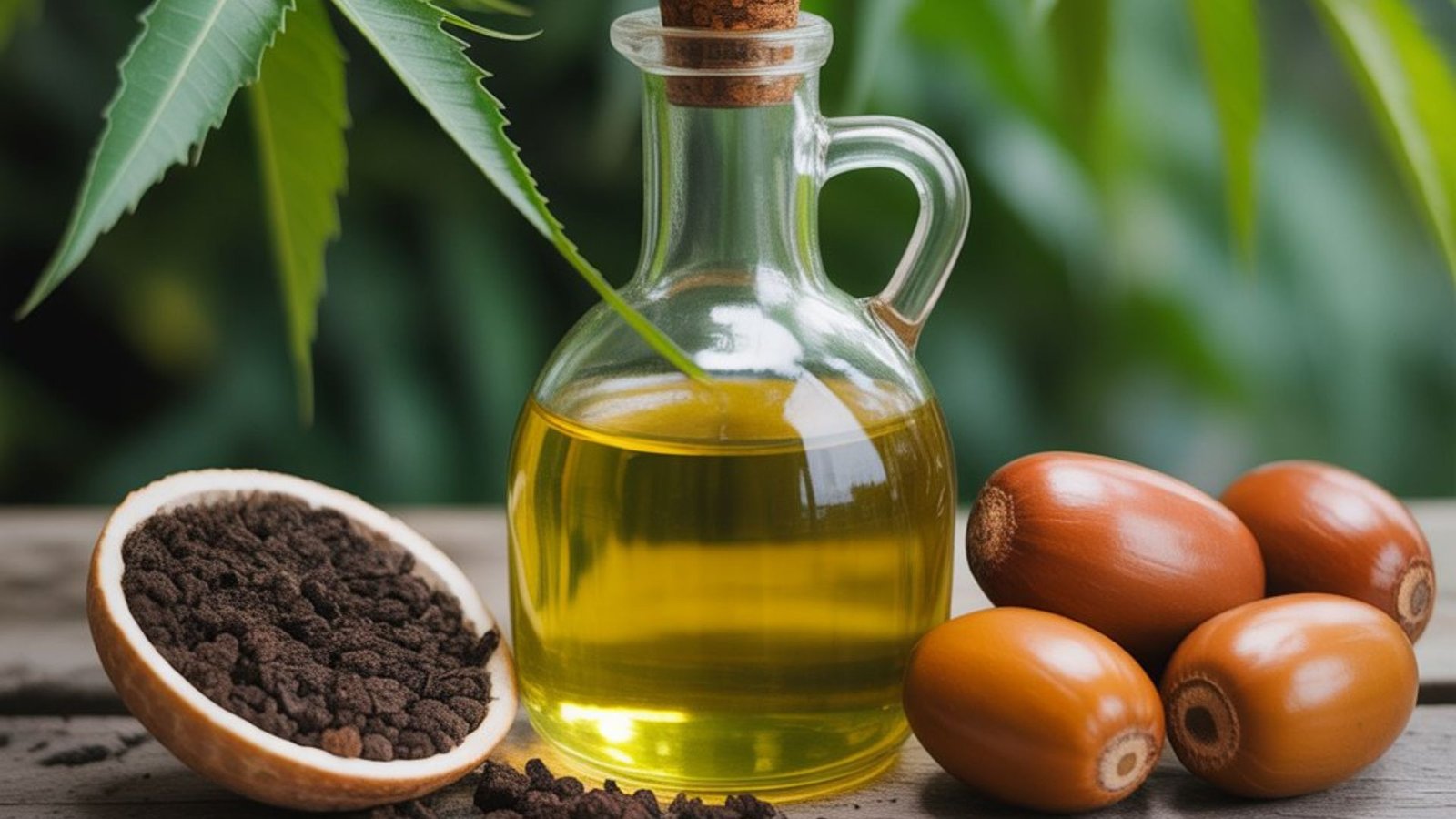Neem oil is a powerful, eco-friendly gardening solution that has become a go-to for many gardeners looking for natural pesticide options. Derived from the neem tree extract, it provides an effective and safe way to safeguard your plants from pests and pathogens without environmental damage. Whether you’re dealing with Usual garden intruders like Greenflies, spider mites, or whiteflies, neem oil for plants offers a non-toxic and sustainable approach.
The oil is able to disrupt the cycle of reproduction and feeding of pests. It also plays a role in aiding in Plant Protection fungus. In this article we’ll discuss how to make use of neem oil for vegetation and be an integral part of your overall plant health routine.
How Neem Oil Works as an Organic Insecticide
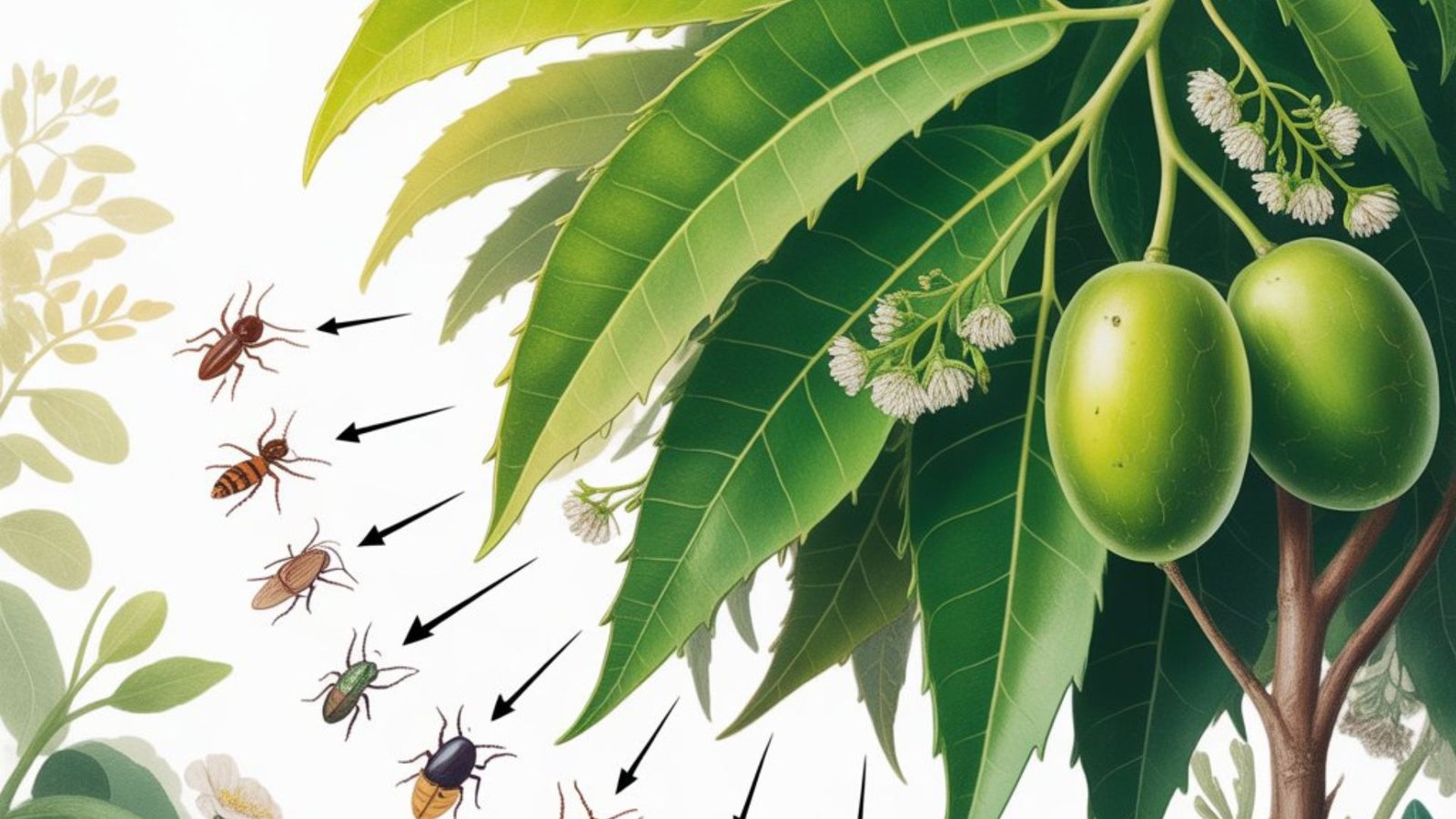
Neem spray is a very good medicine for plant health. It does not kill insects on contact, but rather disrupts biological processes. Spraying neem oil weakens insects on plants so much that they are unable to obtain their food and slowly die, and it is Useful for controlling soft-bodied insects like leaf lice, web-spinners, and whiteflies. One or two sprays are enough to kill such pests. One of the biggest advantages of this spray is that it does not cause any harm to the plants and the plants remain fresh and there is no fear of rotting.
This pesticide that is non-toxic can be used to control fungal illnesses. It blocks new spores from germinating and aiding in the prevention of plant fungus such as powdery mildew. Neem oil isn’t just an immediate fix. It will work over time to stop insects, and provide the long-term protection of your plants.
Choosing the Right Neem Oil for Your Plants
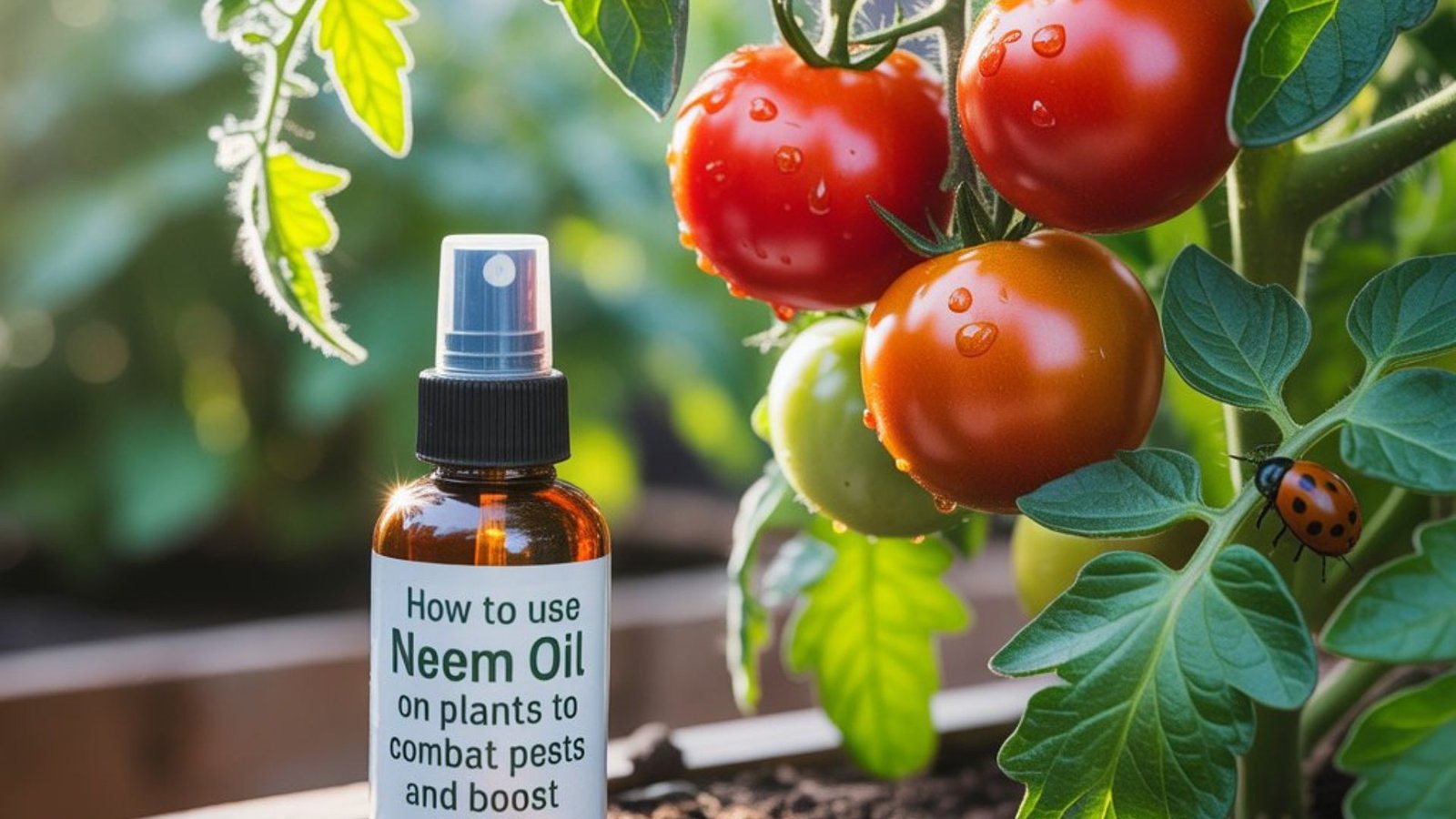
When shopping for neem oil for plants, you may find various options, such as neem oil concentrate vs ready-to-use sprays. A ready-to-use formulation is convenient but may not be as cost-effective. On the other hand, a neem oil concentrate needs to be blended with water, sometimes a mild soap, but it’s generally more affordable and lasts longer.
Make sure to choose 100% pure neem oil. Neem oil-infused products with other substances may not offer the same level of pest control. Also, read the label to ensure it’s safe for the plants you intend to treat, whether they’re houseplants, vegetable plants, or flowering shrubs.
How to Use Neem Oil on Different Types of Plants
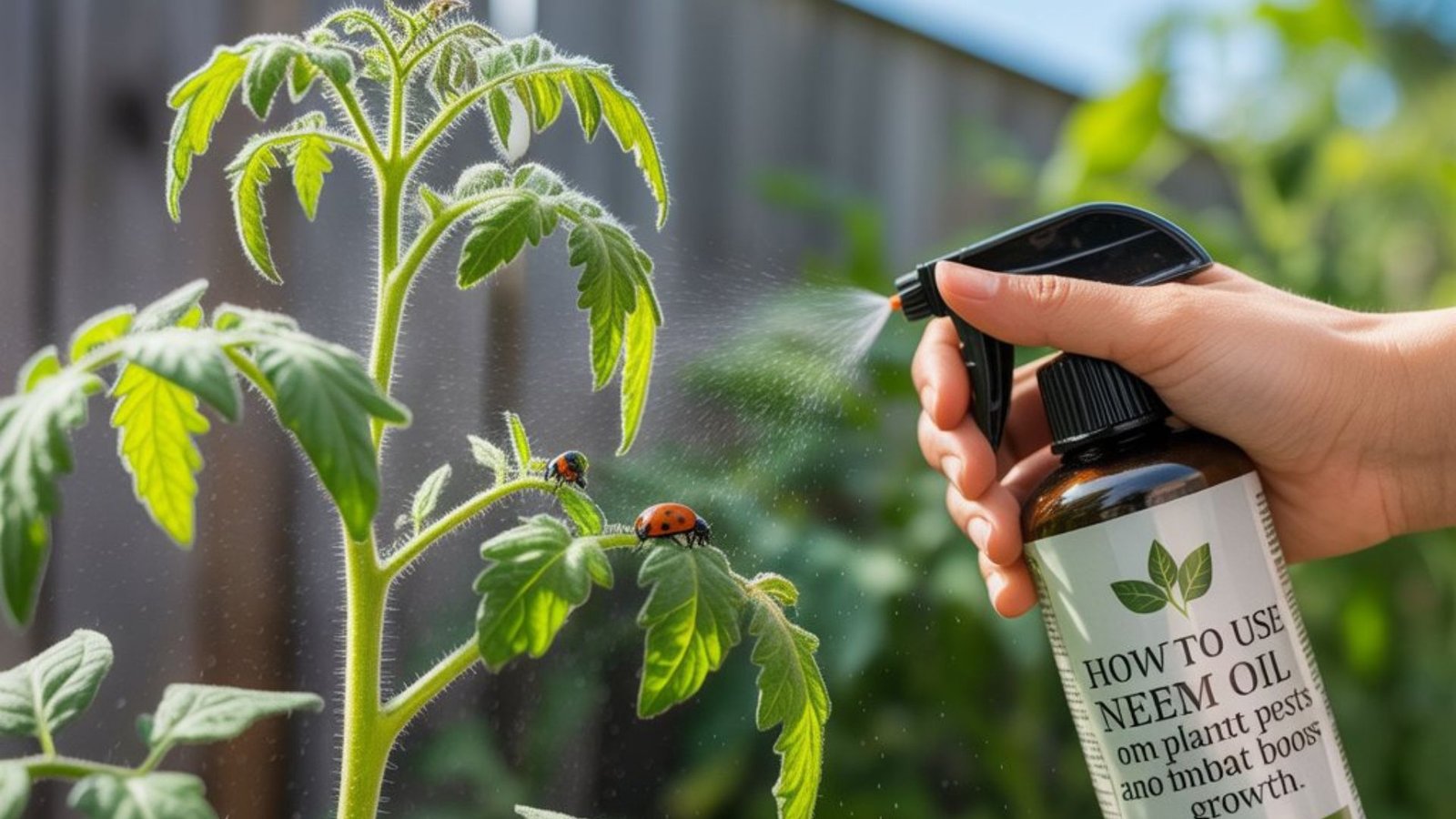
Using neem oil for vegetable plants is safe and effective, but you must always ensure the correct application. When spraying neem oil on plants, coat both the upper and lower surfaces of the leaves where pests often hide. For houseplants, neem oil is especially useful for dealing with common indoor pests like mealybugs and spider mites.
You can also use neem oil on garden insects. It works well for treating pests on plants like tomatoes, peppers, and herbs. However, make sure to spray during the safe pesticide application times–early morning or late evening–when beneficial insects are less active.
Best Time and Method for Neem Oil Application
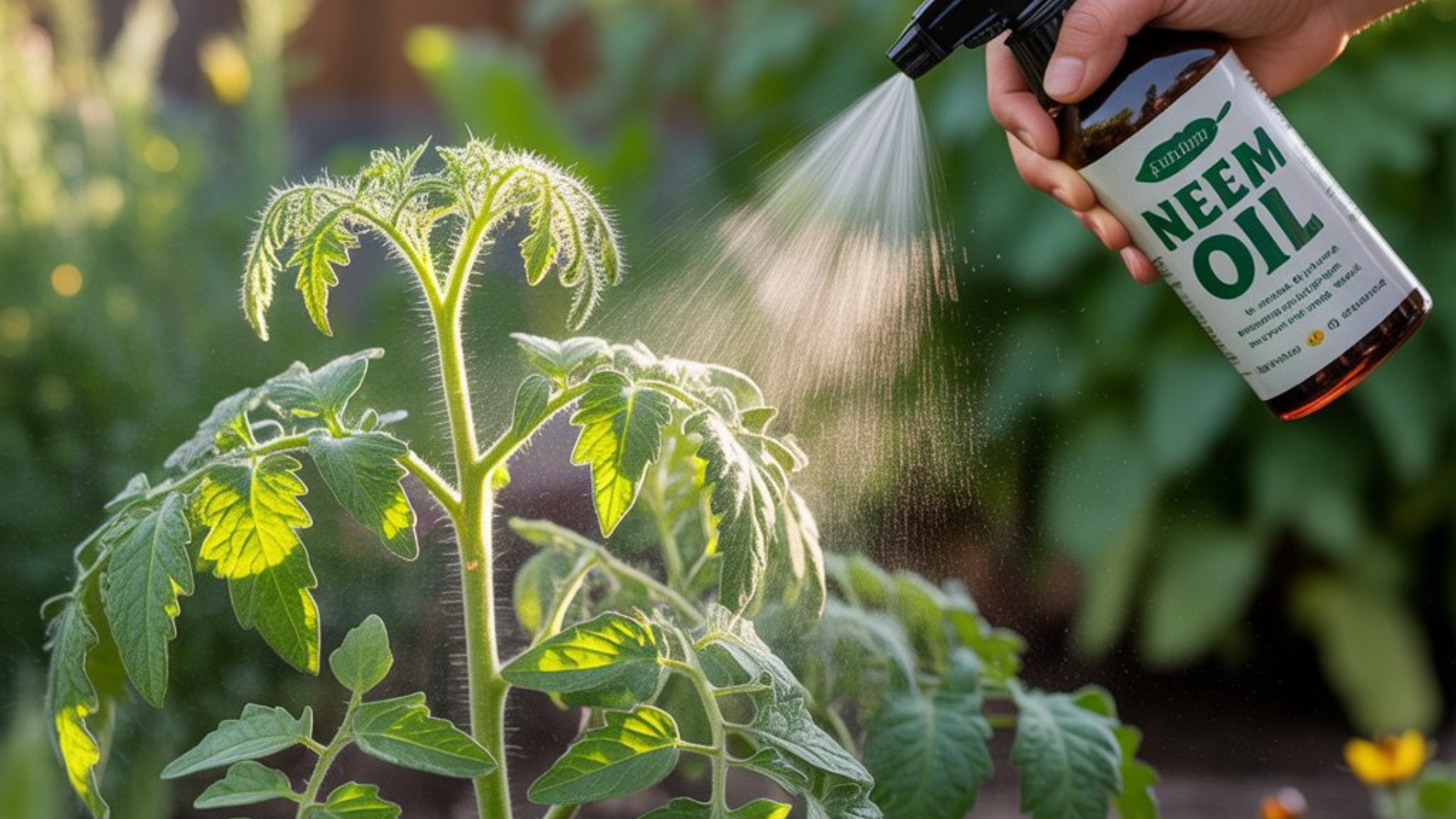
The perfect moment to apply neem oil should be in the early morning or in the late evening. This will help you avoid the intense midday sun that can cause neem oil to ignite leaves of the plant. This also makes sure that the spray gets time to function without being wiped off by dew or rain.
For effective control of insect pests ensure you follow the guidelines on the label. Generally, you’ll need to apply neem oil on a regular basis every 3-4 days until you notice an improvement in the activity of pests. It is essential to be punctual, especially when using the oil of neem to eliminate pests from plants.
Neem Oil Spray: Tools, Materials, and Equipment You’ll Need
To apply neem oil for houseplants or garden plants, you’ll need a few tools. A dispenser bottle or garden sprayer is essential for even application. It is also necessary to have a measuring spoon to mix the right amount of concentrate neem with water. If you’re using a ready-to-use spray, just make sure it’s well-shaken before application.
Always wear gloves when handling neem oil. While it’s a pesticide that is safe however, it’s important to avoid contact with the skin. Be sure that the tools you use are clean prior to applying the spray, as any residual chemicals could affect the efficiency of the spray of neem oil.
Step-by-Step Instructions for Mixing and Applying Neem Oil Spray
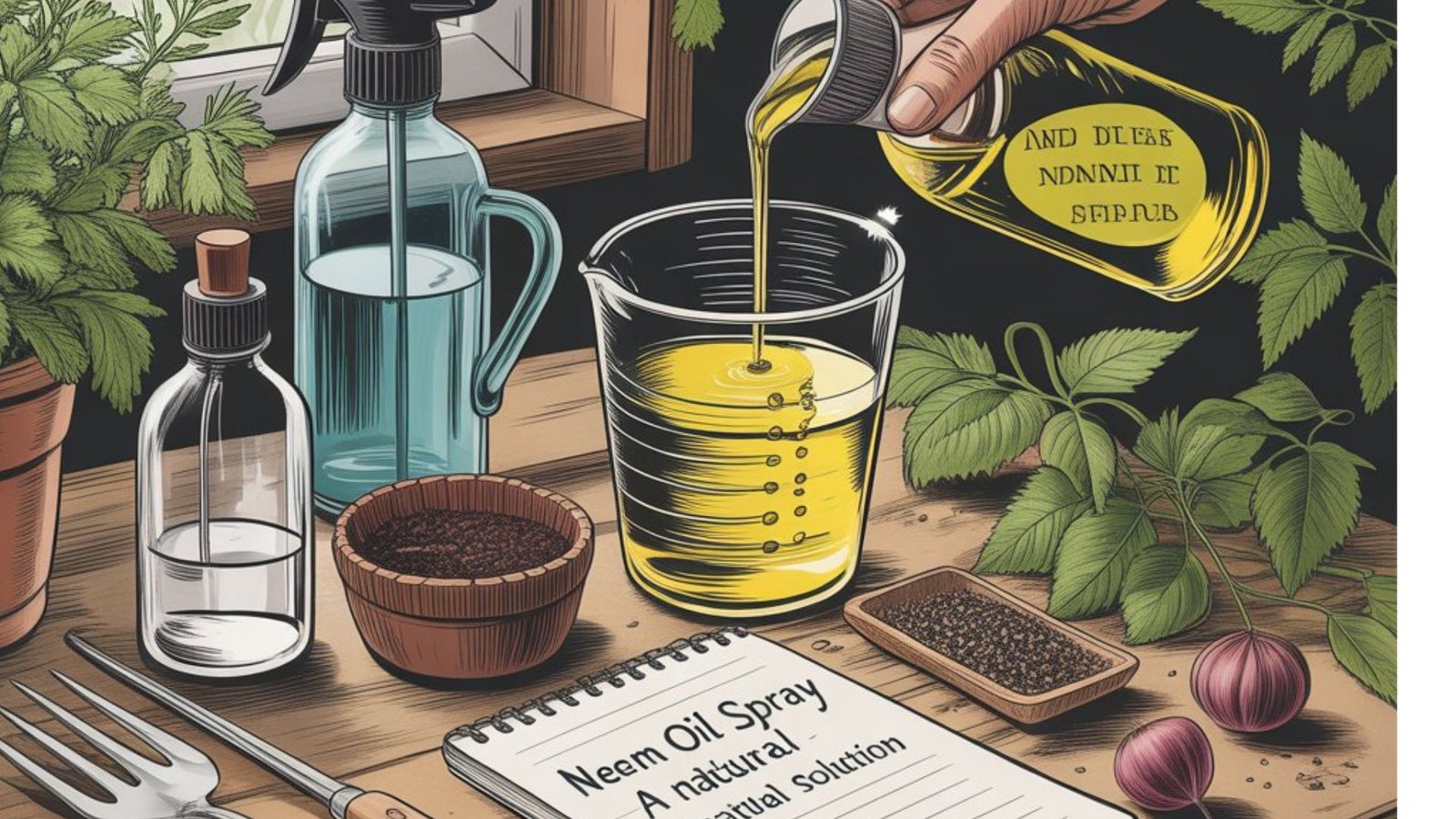
Combining neem oil concentrate is simple. First, measure the correct quantity of neem oil, normally 1 to 2 tablespoon measurement per gallon of water. Add a small amount of dish soap to assist the mixture adhere to the plant leaves. Once mixed, shake the solution well before applying it to your plants.
When applying, make sure to spray neem oil on plants thoroughly. Cover the leaves, stems, and soil around the plant. Always test a small area before full application to avoid any damage, especially on delicate plants or young seedlings.
Common Mistakes to Avoid When Using Neem Oil
A frequently made error is applying too much the neem oil. In excess, it can cause burns to the leaves or cause harm to beneficial insects. Neem oil solution guidelines. Be sure to avoid using it under direct sunlight because it could make the oil react to sunlight and even burn the plant’s tissues.
Another error is Applying neem oil to plants that are stressed. If your plants are overwatered or underwatered, they may react negatively to the spray. Make sure your plants are in good health before treatment to ensure neem oil preservation.
Neem Oil for Pest Control: How to Tackle Common Garden Pests
Neem oil is extremely efficient in the fight against a range of garden pests that are common. It can be extremely effective in tackling Aphids by using neem oils, along with pests like whiteflies and spider mites. Through disrupting the insect’s reproduction and feeding processes the oil of neem helps decrease their population significantly.
It also helps in combating fungal infections like black spots. Neem oil functions as a pesticide on vegetables, preventing an outbreak of fungal diseases, while taking care of existing infestations.
Tips for Storing and Handling Neem Oil
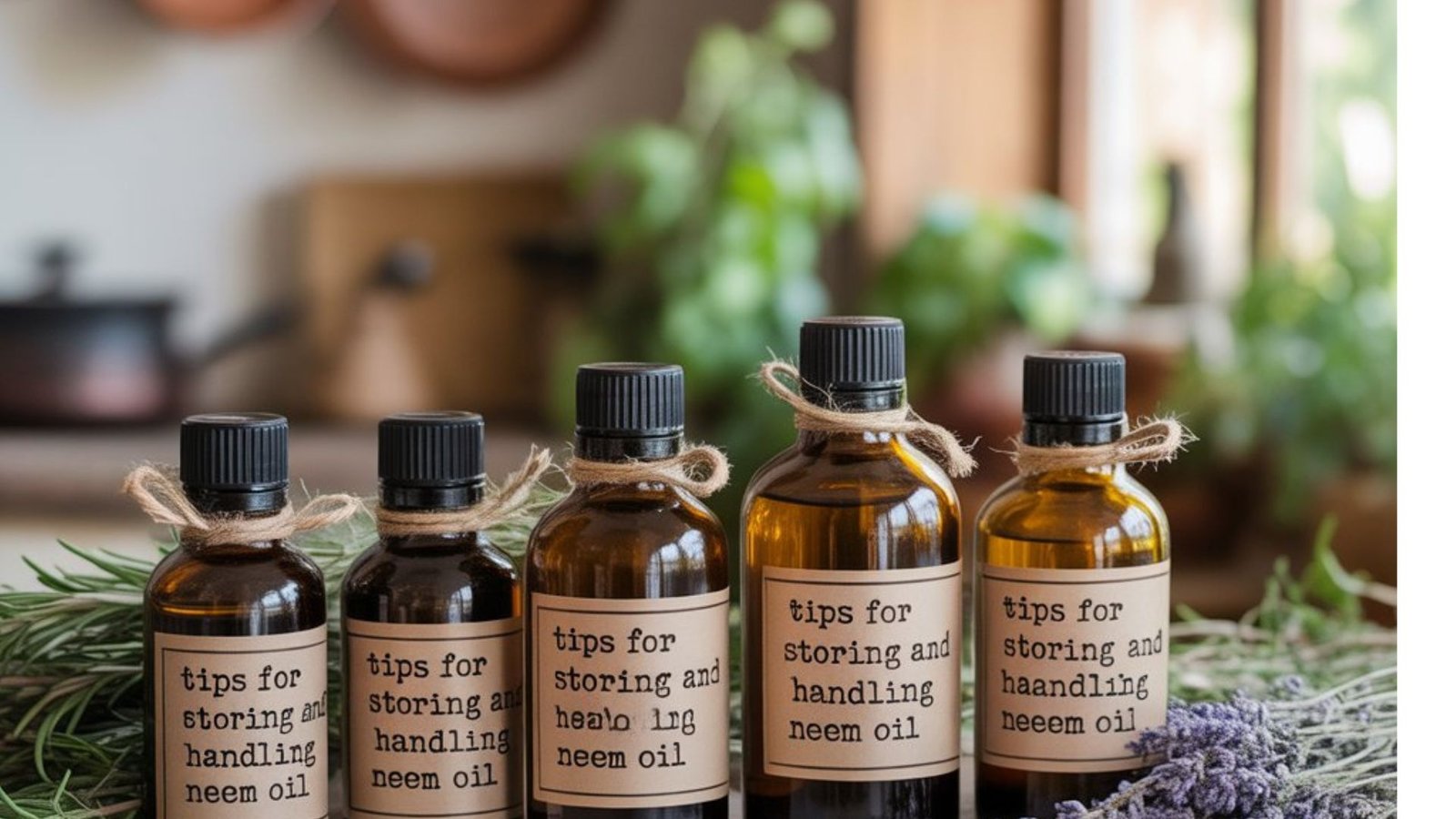
To prolong the shelf-life of neem oil, keep it in a cool, low-light environment, away from hot and direct sunlight. If you own an empty bottle of the oil from neem, it may last for 2 to 5 years. However, once mixed with water, it’s best to consume the blend within 8 hours.
Take care when handling neem oil. It’s environmentally friendly but it may irritate the eyes and skin. Use gloves while mixing and applying the spray, and try not to inhale the spray.
Conclusion:
Neem oil is an eco-friendly gardening option that’s efficient and secure. It’s great for pest-free gardening or home plant maintenance, it’s an excellent option to deal with pests on your own. If you follow the correct methods for applying neem oil and being aware of the safety of neem oil, you can make sure your plants are in good health and free of insects.
You can reap the maximum benefit from neem oil by applying it frequently to prevent pests and weeds. Through regular application and care, neem oil could be an integral component of your maintenance routine for your plant.
FAQ’s
Q1. Do you spray neem oil directly on the plant?
Neem oil must be sprayed directly onto plants, saturating the underside and top leaves where pests can get away.
Q2.How to properly use neem oil?
Blend neem oil and water and mild dish soap. Then spray it onto plants in the morning or late at night to provide efficient pest control.
Q3. What plants should I not use neem oil on?
Refrain from using neem oil to tender or young plants and be aware when using it plants susceptible to oils such as cactus and fern species.
Q4. What bugs does neem oil get rid of?
Neem oil is effective in removing insects like aphids, mites, whiteflies and caterpillars.
Q5. What are the downsides of neem oil?
Although generally non-toxic, Neem oil may be detrimental to helpful bugs. when applied at times of day. Furthermore, the use of excessive amounts of destruction of plants and disrupt pollination.

